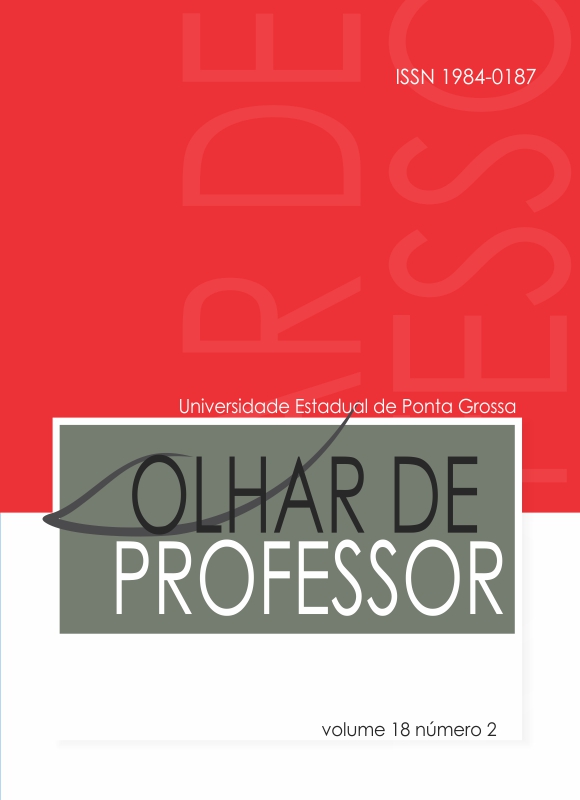O USO DE JOGOS E MATERIAL MANIPULÁVEL NO ENSINO DAS OPERAÇÕES COM NÚMEROS INTEIROS
Conteúdo do artigo principal
Resumo
Neste artigo apresentamos uma pesquisa desenvolvida em uma escola pública no município de Macapá-AP que objetivou analisar o desempenho de alunos do 7º ano do Ensino Fundamental quando submetidos a uma sequência didática sobre operações com números inteiros, com o uso de jogos e material manipulável. Metodologicamente trata-se de uma pesquisa quanti-qualitativa com base na Teoria das Situações Didáticas. Os resultados indicam que a estrutura da sequência didática possibilitou saltos qualitativos na compreensão, socialização e autonomia para resolução das atividades. Concluímos que um conjunto de atividades devidamente estruturada e planejada com o uso de jogos e materiais manipuláveis contribui significativamente para o processo de ensino e aprendizagem dos alunos.
Downloads
Detalhes do artigo
Autores que publicam nesta revista concordam com os seguintes termos:
a) Os autores mantêm os direitos autorais e concedem à revista o direito de primeira publicação, com o trabalho simultaneamente licenciado sob a Creative Commons Attribution License Atribuição 4.0 Internacional (CC BY 4.0) que permite o compartilhamento do trabalho com reconhecimento da sua autoria e publicação inicial nesta revista.
b) Os autores são autorizados a assinarem contratos adicionais, separadamente, para distribuição não exclusiva da versão publicada nesta revista (por exemplo, em repositórios institucionais ou capítulos de livros), com reconhecimento da sua autoria e publicação inicial nesta revista).
c) Os autores são estimulados a publicar e distribuir a versão onlline do artigo (por exemplo, em repositórios institucionais ou em sua página pessoal), considerando que isso pode gerar alterações produtivas, bem como aumentar o impacto e as citações do artigo publicado.
d) Esta revista proporciona acesso público a todo o seu conteúdo, uma vez que isso permite uma maior visibilidade e alcance dos artigos e resenhas publicados. Para maiores informações sobre esta abordagem, visite Public Knowledge Project, projeto que desenvolveu este sistema para melhorar a qualidade acadêmica e pública da pesquisa, distribuindo o OJS assim como outros softwares de apoio ao sistema de publicação de acesso público a fontes acadêmicas.
e) Os nomes e endereços de e-mail neste site serão usados exclusivamente para os propósitos da revista, não estando disponíveis para outros fins.
______________

Este obra está licenciado com uma Licença Creative Commons Atribuição 4.0 Internacional.





